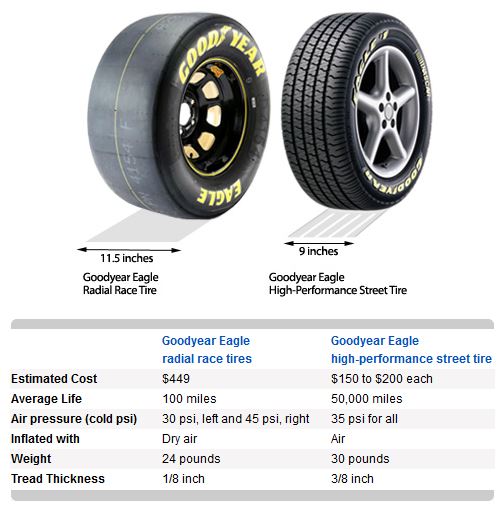
Ladies and Gentlemen, start your engines!
The adrenaline rush of stock car racing is back as Daytona International Speedway kicks off the NASCAR season every year. The Daytona 500 (“The Great American Race”) will grace our TV’s Sunday, February 22nd. This also means car brands will be kicking into high gear shelling out millions of dollars partnering with racetracks to promote test drives for the latest models on the showroom floor.
NASCAR lives on corporate sponsorships. In what other sport do you see athletes and their equipment littered with logos? Soccer’s English Premier League has a title sponsor on the jerseys, but it’s nothing compared to the auto racing industry -- and to NASCAR in particular. Here you have logos covering every square inch of the car, billboards along the track, and a title sponsor for most races. Just listen to any winning driver’s victory speech, the first thing they will mention are their sponsors because without them, they wouldn’t have a job.
This brings us to the cars and their original equipment manufacturers (OEM). In 2014 Chevrolet drivers earned the brand its 12th consecutive NASCAR championship which was its 38th championship overall – and they won it by a slight edge in the final tally… talk about fierce competition! But considering that Chevrolet’s drivers are the “who’s who” of most successful in the NASCAR circuit – with the likes of Dale Earnhardt, Jr., Jimmie Johnson, Jeff Gordon, and Kevin Harvick combining for 17 wins alone – this makes sense.
New NASCAR Rules
NASCAR has implemented a new rule to reduce engine sizes of all competing vehicles starting this season in order to, they say, control costs. The engine has been cut from 850 horsepower to 725, with the hopes of extending the engine’s life. Engine makers TRD, Roush-Yates, and Childress must now find more horsepower elsewhere for their respective brand partners Toyota, Ford, and Chevrolet. Many in the NASCAR world believe the effort will improve the competition level and excitement for fans by allowing more passing in the turns, building upon the positive impact the Gen-6 Sprint Cup cars introduced in 2013 had. Today’s racers are starting to resemble models you would find in your dealership -- in appearance only, of course. Under the hood you’d never find a NASCAR model that is street legal!
In addition to engine size, Cup cars will also feature a new tapered spacer and smaller 6-inch spoiler. The spacer (essentially a thicker restrictor plate) limits airflow to the engine and, in turn, the horsepower generated. The rear spoiler will be cut back to decrease the downforce. These equipment changes may be negligible to the viewer, but for teams and OEM’s they are significant variables to consider if they want to compete for the manufacturer’s championship and NASCAR’s title.
Whether you’re Chevrolet, Ford, Toyota, Dodge, Pontiac or other dealer; these OEM racer changes will affect production cars as well as future racing results.
Don’t Forget the Tires
When you’re dealing with such a finely balanced machine, changing the car means changing the tires, too, but according to NASCAR’s official tire sponsor, Goodyear, the new rules will “probably [only have] a fairly minimal impact heading into 2015”. Nevertheless, the smaller engines remove 50 pounds from the car so Goodyear must consider what that will mean for drivers as they enter corners and navigate the mid-corner. Safety is always the main priority in auto racing, but competition is not far behind.

Another change NASCAR will begin to do is run cars in the rain at Watkins Glen International and Sonoma Raceway. These are the only road courses on the circuit so rain racing on these tracks could be significant because road courses have left and right turns, and constantly changing elevation compared to all other NASCAR tracks that are traditional left-only-turn ovals. Depending on the race length, teams will use between 9 and 14 sets of tires because the average life span of a racing tire is only 100 miles.
NASCAR can implement all the rules it wants to improve competition and reduce costs. It still comes down to the talent – the drivers – and what they bring to the cockpit.
The same goes for your payment services.
Think of it as your own driver - the talent - that produces positive results for your dealership. With our check guarantee services in place, all checks properly approved through our system will be funded, even the returned ones.
Cut your losses from bad checks and let check guarantee do the heavy lifting. You just might be celebrating a championship of your own.



